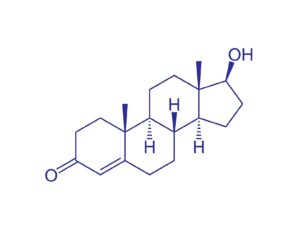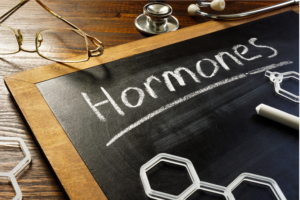It’s inevitable that testosterone levels begin to naturally wane for men after hitting age 30. In fact, most men will lose approximately 10 percent of their total and free testosterone with each decade of life. Lower testosterone, known as low T or andropause, contributes to a decline vitality, performance, strength, stamina and quality of life.
While prescription testosterone replacements are an option, more men are looking towards high quality testosterone supplements made from herbs, vitamins and minerals to help counteract deficiencies and aging. Male testosterone boosters can offer a safe, affordable and non-invasive way to recoup lost manhood and feel young again.
This article will cover why testosterone is so vital for men’s health, why levels decline with age, signs and symptoms this decline and provide tips for choosing quality testosterone boosters to address deficiencies.
Why Testosterone Is So Vital for Men’s Health
Testosterone is truly the “male” hormone that makes gentlemen well, gentlemanly. As the predominant male sex hormone, testosterone plays a pivotal role in:
- Muscle Growth and Strength
- Energy Levels and Motivation
- Sex Drive and Performance
- Erectile Function
- Bone Health
- Mood, Focus and Verbal Fluency
- Red Blood Cell Production
- Body Fat Distribution
- Facial and Body Hair
Testosterone also acts as a protector against various age-related diseases including metabolic disorders, cardiovascular disease and osteoporosis.
With testosterone touching so many aspects of men’s daily life, it’s clear that healthy levels (500-1200 ng/dL) are crucial to vitality, vigor and wellness.
Why Testosterone Levels Decline with Age
Most men start noticing the symptoms of andropause around age 40, when testosterone has dipped 15-20 percent below youthful levels. Unfortunately this decline continues at about 2 percent loss per year for the rest of their life.
Reasons for shrinking testosterone concentrations include:
- Diminished Testicular Function – The testes produce less testosterone due to reduced LH signals from the pituitary gland.
- Increased Sex Hormone Binding Globulin (SHBG) – More testosterone becomes bound to SHBG proteins, causing lower amounts of free/usable testosterone.
- Poor Lifestyle Habits – Lack of sleep, excess body fat, smoking, alcohol abuse and chronic stress suppress testosterone.
- Certain Medications – Including opioids, corticosteroids, antidepressants and diabetes drugs impact hormones.
- Some Health Conditions – Such as liver or kidney disease, radiation exposure, autoimmune disorders and type 2 diabetes.
Common Signs and Symptoms of Andropause
How do you know if you could benefit from a testosterone booster? Here are some of the most common age-related, low T symptoms:
- Increased Body Fat/Decreased Muscle Mass
- Reduced Sex Drive/Libido/Erections
- Fatigue, Lethargy, Depression
- Mental Fog, Poor Memory/Focus
- Loss of Body/Facial Hair
- Hot Flashes, Night Sweats
- Loss of Height
- Reduced Work Capacity
If your ambitions no longer match your physical capabilities, adding an extra testosterone boost could help get you back on track!
Benefits of Taking a Natural Testosterone Booster
Rather than jumping right onto testosterone replacement therapy, taking non-hormonal supplements can provide moderate improvements by addressing specific deficiencies. Benefits may include:
- Improved Muscle Growth and Body Composition
- Increased Sex Drive and Performance
- More Energy, Endurance and Stamina
- Elevated Mood, Motivation and Aggression
- Clearer Thinking, Memory and Focus
- Restored Work Capacity and Recovery Ability
- Protection Against Various Diseases
- Avoiding the Risks Involved With TRT
What to Look For in A Quality Testosterone Supplement
With hundreds of testosterone boosters on the market, selecting a high quality product means reading labels and researching ingredients. Top notch testosterone supplements tend to contain following compounds:
D-Aspartic Acid – Boosts luteinizing hormone (LH) to trigger testosterone synthesis in Leydig cells.
Vitamin D3 – Low vitamin D3 correlates to low T. D supplementation can enhance testosterone while supporting immunity.
Zinc – Inhibits aromatase enzyme to prevent converting T into excess estrogen. Also enhances growth factors involved in testes function.
Boron – Mineral that reduces globulin levels to increase free testosterone in circulation.
Magnesium – Helps modulate anabolic hormonal status and improves muscle protein synthesis.
Nettle Leaf – Contains lignans that suppress globulin proteins, similar to boron. Nettle leaf also may support prostate health.
Additionally, ingredients like ashwagandha, fenugreek, Siberian ginseng, maca root or ginkgo biloba could provide even more masucline-boosting potential.
Thought topicals, shots and patches might seem tempting, most endocrinologists suggest oral capsules for improved absorption and balanced delivery.
The Bottom Line
While lowering testosterone represents an unavoidable aspect of male aging, strategic supplementation can help stall, reduce or reverse symptoms of deficiency. Seek out premium herbal testosterone boosters backed by lab testing and positive customer reviews. Additionally, tweak training/nutrition programs to best support your revitalized hormones once treatment begins!



